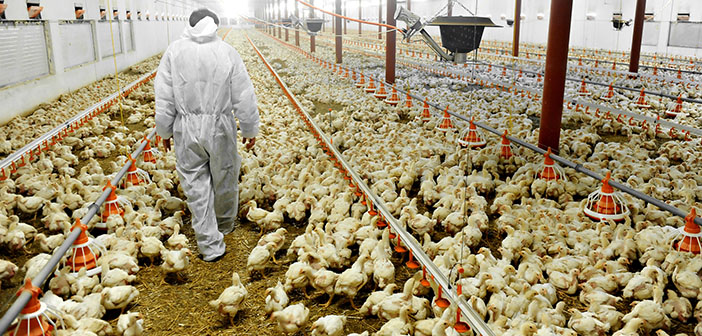Free range egg producers are being reminded to stick to their usual worming routines during the poultry housing order.
Rosie Booth, poultry technical consultant at Elanco, said that there is some confusion among the industry as to whether or not birds need to be wormed while they continue to stay indoors.
Ms Booth said: “Although birds aren’t currently in contact with the outdoor environment, it’s more important than ever to maintain your usual worming routine.
“This is because birds are in closer confinement and will come into more contact with faeces in the sheds, therefore picking up and spreading worms more easily.”
Ms Booth explained that most birds are wormed in six week intervals throughout the production cycle, with some exception upon veterinary advice. So, she advises to continue to follow whatever normal protocols your vet or packer has previously recommended.
She added: “It’s also worth noting that, when birds are allowed out again, the range will not be ‘clean’ even though it will have remained barren for a number of months. Worm eggs are extremely resilient, and although some may have been killed off in harsh frosts, there will still be enough to present a risk to birds.”
“So again, it really is essential to continue your routine worming practices, whatever your situation, in order to maintain productivity and uphold welfare standards.”
For ease and convenience to ensure uniform feed intakes, it’s recommended that producers speak to their vet or animal health advisor about using preventative treatments, such as Flubenvet, which can be included in diets at the feed mill.
Ms Booth added: “Only a routine Flubenvet treatment in feed every six weeks will target all the life stages, including worm eggs, of all major poultry worm species, with zero egg withdrawal period.”


